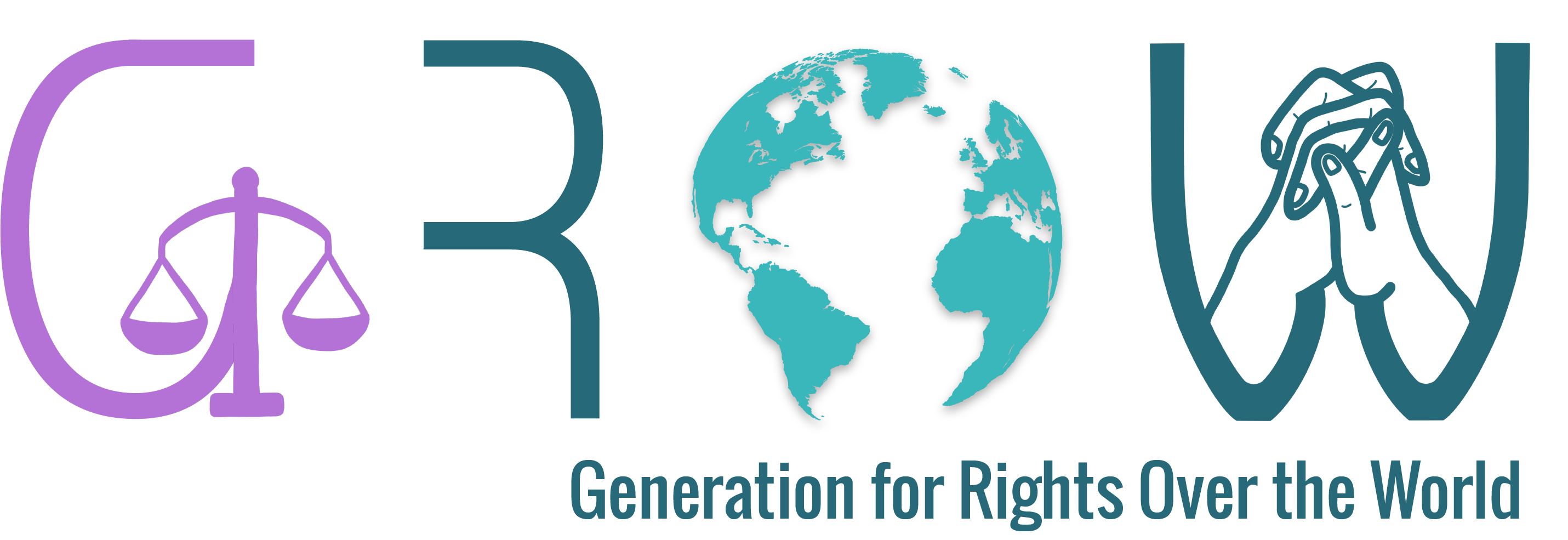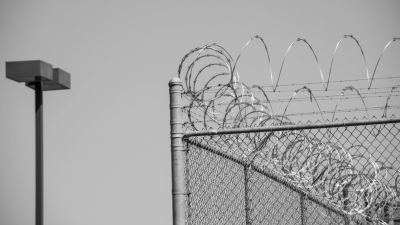Download PDF PDF Downloaden Descargar PDF
Five years into the refugee crisis, the European Union (EU) has decided to change its migration policy. It took a global pandemic and devastating fires in the Moria camp for Europe to take a major decision under pressure. On September 23rd 2020, the European Commission presented the new Pact on Migration and Asylum which will mark a new era in the protection of asylum in the EU. The Dublin III Regulation will be replaced by a new approach combining solidarity and responsibility. It’s a déjà vu in EU migration policies that have been struggling to cope with a migration crisis for the past five years.
Five years in the refugee crisis, the EU decided to change its policies.
Earlier this September, the European Commission President Ursula von der Leyen manifested strong interest in abolishing the Dublin III regulation and establishing new asylum mechanisms that align solidarity and responsibility across the EU.
On September 23rd, 2020, the European commission debuted the new pact on migration and asylum that would declare a new era in asylum protection in the EU. The Dublin III regulation was replaced by a new approach combining solidarity and responsibility, words that we have already heard before in other EU migration policy attempts, such as the EU-Turkey deal that proved to be a failure in practice.
International asylum protection is regulated in the EU by the Common European Asylum System (CEAS) that aims to offer applicants to asylum in Europe a consistent, unified, and standardized status and an equal degree of protection throughout the European Union. The body of legislation includes five main texts targeting criteria, procedure, hosting policies, the Dublin III regulation voted in 2013 and the EURODAC1 regulation.
The Dublin III Regulation, part of the CEAS, strictly stated that asylum seekers can only apply and receive international asylum protection in the first EU country they entered. This scheme puts pressure on countries along the EU border, making them the almost exclusive recipients to asylum seekers. The text is therefore flawed in its principle, as it clearly delegates the responsibility to host and protect displaced persons to the bordering countries of the EU2.
Other migration policies that reflected the same lack of solidarity is the EU-Turkey deal, established in 2016 to deal with the refugee crisis and regulate illegal migration. In practice, the deal showed multiple flaws, mainly dealing with budget and the feasibility of the principles agreed upon3.
The common concern regarding the EU-Turkey deal and the Dublin III regulation is the viability and efficiency of these legislation in the long run. In practice, the Dublin III regulation showed inconsistencies that put pressure on certain countries such as Italy and Greece, unable to sustain such a responsibility without solidarity from other EU countries. Indeed, the Mediterranean and the Aegean Sea being the preferred routes for migrants and asylum seekers, Italy and Greece face the highest numbers of entries into their territories according to the latest IOM statistics4. Last year, Greece was the first country of entry of migrants into Europe with 16,000 migrants from January to July 2019. This year, from January to March 2020, the numbers have continued to increase and the global pandemic COVID-19 has exacerbated the situation in the country5.
The Dublin III regulation proved to be divisive to the EU member states
The bordering countries had to deal with disproportionate pressure due to the Dublin regulation III and the EU-Turkey deal, which led to crowded administrative detention centres and camps in Greek Islands and Italian islands.
As the Dublin Regulation III provides that the first host country of the asylum seeker is the one responsible for its application, EU member states have been returning asylum applicants to their first EU host countries, which are most of the time bordering countries such as Italy and Greece.
Greece is in the frontlines of the crisis bordering Turkey, and the Mediterranean Sea. This location has put the country under overwhelming migration pressure, facing an unprecedented economic crisis in the country. In 2011, in the M.S.S vs Belgium and Greece case6, the European Convention on Human Rights (ECHR) has identified serious deficiencies in the reception conditions of asylum seekers and in the asylum procedures in Greece.
The facts of this case dealt with an Afghan asylum seeker who had fled Kabul in 2008 and entered the EU through the Greek border. He then travelled to Belgium to seek asylum. The Belgian authorities have returned him to Greece in June 2009, on grounds of the Dublin III regulation that held Greece the responsible Member State for the examination of the asylum application. In Greece, he was detained in insalubrious conditions before losing material support and living on the streets.
This case dealt with the compatibility of the Dublin III Regulation with the ECHR, regarding transfers to Greece under this regulation. The applicant claimed that Greece has violated Article 2 providing the right to life, Article 3 prohibiting inhuman or degrading treatment or punishment, and Article 13 guaranteeing the right to an effective remedy.
The Court’s reasoning dealt with both Belgium and Greece’s responsibilities to comply with Article 13, Article 3. The Court has found that Greece has violated Article 3 because of the applicant’s living conditions. The applicant’s situation was particularly serious, ranging from extreme poverty (unable to access basic needs such as food, hygiene, a place to live) to additional factors such as an ever-present fear and unsafety. The Court’s reasoning touched on the fact that this situation is lived by many asylum seekers throughout Europe. However, the applicant’s situation could have been alleviated had his application request been examined promptly.
The Court ruled that by transferring the applicant to Greece, Belgium exposed him knowingly to degrading detention and living conditions in violation of article 3, ECHR. This decision pushed Member States to stop Dublin III transfers to Greece. However, in 2016, the European Commission urged Greece to resume Dublin III hosting despite the peak of the refugee crisis.
It is evident that certain EU countries face more pressure than others regarding the refugee crisis. Greece’s asylum system seems to crash these past few years, with hotspots created in its Islands, hosting more than their capacities.
The Agenda of Migration of May 2015 provided the hotspot idea. The approach consists of the concentration of coordinated operational support at a member state to help deal with overwhelming arrivals. The hotspot endorsed by the European Council aims to implement effective resettlement and relocation schemes. Hotspots are supposed to improve the security and law enforcement by systematic and integrated security checks. A member State that finds itself in a situation of migratory pressure can request the hotspot response7.
This new landmark approach in the EU Migration strategy presents a blurry policy framework. Indeed, the EU did not provide legal instruments to regulate the hotspots. They are regulated by a shared responsibility from multiple agencies under the supervision of the European Commission: Frontex8, the European Asylum Support Office (EASO)9, Europol10 and the Fundamental Rights Agency11.
Normally under the Greek Asylum law regulating the hotspots, detention is limited to three days to identify the migrants. However, this detention could be extended to 25 days. These provisions are yet to be adopted as they are put on hold due to the changes in the Greek policies due to the EU-Turkey deal. Indeed, in practice, all migrants are detained in the hotspots for the entire process12.
Many NGOs qualify the Greek hotspots in islands like Lesbos, Samos and Kos as open-air prisons where arriving people are detained until their destiny is sorted out. The conditions in these hotspots worsen year after year as reports from the International Committee of the Red Cross and Doctors Without Borders show. The latter warned about a medical emergency in camps that host more than their original capacity. Doctors Without Borders testified that in early 2020, Greek public authorities refused to medically treat gravely ill children in the Moria camp in Lesbos13. The living conditions in the camp are said to be inhumane and in complete violation of international law and of the Refugee Convention. According to doctors without borders, as of September 2019, the camp that has a capacity to host 3000 people hosted 13 00014.
With the COVID-19 pandemic, the situation is more urgent than ever. During an era when people are subject to confinement and self-isolation, migrants in Greek Islands do not have the option to self-isolate due to the overcrowded camps they are bound to survive in. Civil society has urged the EU to react and to evacuate the Greek hotspots, in the best interest of the children, the families, the women and men contained there. Activities have substantially reduced due to the pandemic and humanitarian aid as well, therefore, due to government restrictions. Although Greece is one of the countries that have most successfully managed the COVID-19 pandemic with a flattened curve earlier than expected, the migrants are still subject to precarious conditions, putting their health and their lives at risk.
The New Pact on Migration and Asylum already controversial
For five years, the EU was unable to control the refugee crisis. The situation has gotten out of control as bordering member states reached saturation.
The devastating fires in the Moria camp in Greece last September have pushed the EU to act fast and suggest new strategies and policies to act upon the refugee crisis. The new approach to asylum claims to establish sustainable asylum and migration regulation by putting solidarity and cooperation at the centre of the procedures. The new agenda consists of four main points15:
First, the pact entails deploying more efficient and faster procedures at Europe’s borders. The EU Commission suggested new verification and identification procedures to be introduced directly at the EU borders. This would establish a first screening process to assess and identify every person that reaches the EU border without authorisation. This screening would consist of security, health and finger-print check-up and recording on the EURODAC platform. The aim is to filter instantly and to orientate applicants towards the adequate asylum procedure16. The EU Commission asserts that it is at that screening moment that the decision to grant asylum will be made. This presents a dangerous prospect in the protection of the asylum right and the right to adequate access to the procedure guaranteed by the Geneva Convention. Will we go from a slow and ineffective procedure to a hasty and inadequate one?
The primary focus of the new pact is to emphasise solidarity and shared responsibility between EU Member States. After the Dublin regulation III, the EU seems to have learned a lesson. The said regulation has proved to be divisive to the EU member states. The New Pact on migration and asylum promises an equal sharing of responsibility and solidarity between EU member states. The States will be urged to act in solidarity in a time of crisis. The burden should be shared equally, and a flexible contribution will be expected from member states to help with the crisis in multiple situations17.
Finally, The EU Commission will encourage partnerships between EU member states to help them overcome the crisis in unity. The New Pact on migration and asylum will present a new legal framework that would be relevant and common to the EU member states. The Pact suggests a common structure on migration and asylum that would establish partnerships to attract talent migration and integration18. It is a comprehensive approach to asylum that promotes cooperation between Member States.
The next step for the EU is to work on a new legal framework and to put in place the new pact. It took five years of inequalities and human rights violations for the EU to act upon failed asylum policies. This process will take time while camps and administrative detention centres are still flooded, exceeding their capacity. The latest unprecedented events have had a huge toll on the EU migration policy and its cooperation strategy. Consequently, the EU’s decision to consider another way to deal with the crisis by strengthening cooperation and solidarity and build a new chapter in its migration policy history seems to be timely and much needed. The New Pact on Migration and Asylum still has to prove that the EU member states can come together in solidarity and cooperate to solve a common challenge, in an equal manner.
While countries like Italy and Greece might welcome this pact with open arms, other countries do not seem so enchanted. As of now, the EU member states have agreed upon the importance to contain the crisis, but not yet on the way it should be dealt with. As negotiations on the legal framework go on, the new pact will face significant challenges in complying with international law and the interests of the EU member states.
REFERENCES
Commission Européenne. (2020). Une Nouvelle Approche en Matière de Migration : Instaurer un Climat de Confiance et un Nouvel Équilibre entre Responsabilité et Solidarité. EC.europa.eu. [online] Available at: https://ec.europa.eu/france/news/20200923/nouveau_pacte_migration_et_asile_fr [Accessed 8 Nov. 2020].
Office français de protection des réfugiés et apatrides. (2016). Qu’est-ce que le RAEC ? OFPRA. [online] Available at: https://ofpra.gouv.fr/fr/asile/vers-un-regime-d-asile-europeen/definition-du-raec [Accessed 8 Nov. 2020].
NEVILLE, D., SY, S. and RIGON, A., (2016). On the Frontline: The Hotspot Approach to Managing Migration. Europarl.europa.eu. [online] 10 May. Available at: https://www.europarl.europa.eu/thinktank/it/document.html?reference=IPOL_STU%282016%29556942 [Accessed 8 Nov. 2020].
Info Migrants.net. (2020). La Grèce redevient le Premier Pays D’entrée des Migrants en Europe. [online] 25 Jul. Available at: https://www.infomigrants.net/fr/post/18388/la-grece-redevient-le-premier-pays-d-entree-des-migrants-en-europe [Accessed 8 Nov. 2020].
Le Monde.fr. (2020). Que reste-il du Pacte migratoire UE-Turquie, aujourd’hui décrié par Erdogan ? [online] 11 Mar. Available at: https://www.lemonde.fr/international/article/2020/03/11/que-reste-il-du-pacte-migratoire-entre-l-ue-et-la-turquie-aujourd-hui-decrie-par-erdogan_6032622_3210.html [Accessed 8 Nov 2020].
Asylumineurope.org. (2016). Greece: Asylum Reform In The Wake Of The EU-Turkey Deal. [online] 4 Apr. Available at: https://www.asylumineurope.org/news/04-04-2016/greece-asylum-reform-wake-eu-turkey-deal [Accessed 8 Nov. 2020].
Amnesty France. (2017). Accord UE-Turquie : La Honte De L’Europe. Amnesty France. [online] Available at: https://www.amnesty.fr/refugies-et-migrants/actualites/accord-ue-turquie–la-honte-de-leurope [Accessed 8 Nov. 2020].
Médecins Sans Frontières. (2020). À Lesbos, les autorités grecques refusent de soigner des enfants gravement malades. MSF. [online] Available at: https://www.msf.fr/communiques-presse/a-lesbos-les-autorites-grecques-refusent-de-soigner-des-enfants-gravement-malades [Accessed 8 Nov. 2020].
Médecins Sans Frontières. (2020). Covid-19: L’Évacuation des camps grecs est urgemment nécessaire. MSF. [online] Available at: https://www.msf.ch/nos-actualites/communiques-presse/covid-19-levacuation-camps-grecs-est-urgemment-necessaire [Accessed 8 Nov. 2020].
CEDH – M.S.S. c. Belgique et Grèce [GC], Requête n° 30696/09.
Conseil européen. (2016). Déclaration UE-Turquie. Communiqué de presse du 18 mars 2016.
Le Parlement Européen et le Conseil Européen. (2013). Règlement Dublin III. no 604-2013, 26 juin 2013.
To quote the article:
OUBAZIZ, Y. (2020). The Pact on Migration and Asylum: Why the EU decided to change its asylum and migration policies. Generation for Rights Over the World. growthinktank.org. [online] Dec. 2020.
©Image by Dkadume from Pixabay.
Translated by Yasmine Oubaziz.
| ↑1 | Eurodac is an information system established for the comparison of fingerprints of asylum seekers and illegal immigrants in order to apply the Dublin Convention to determine the State responsible for examining an asylum application.
OFPRA, (2016). Qu’est-ce que le RAEC ? OFPRA. [online] Available at: https://ofpra.gouv.fr/fr/asile/vers-un-regime-d-asile-europeen/definition-du-raec [Accessed 8 November 2020]. |
|---|---|
| ↑2 | EU Parliament & European Council, ‘Dublin Regulation III’, no 604-2013, 26 juin 2013. |
| ↑3 | Debuted in 2016 after the 2015 Refugee Crisis, the EU-Turkey deal was presented as a cooperation between the EU and Turkey to share the responsibility of the crisis while combating illegal migration. |
| ↑4 | OIM. (2020). Arrivées De Migrants En Europe Par La Méditerranée En 2020 : 4 432 ; Décès En Mer : 68. Organisation internationale pour les migrations. [online] Available at: https://www.iom.int/fr/news/arrivees-de-migrants-en-europe-par-la-mediterranee-en-2020-4-432-deces-en-mer-68 [Accessed 8 November 2020]. |
| ↑5 | InfoMigrants. (2020). La Grèce Redevient Le Premier Pays D’entrée Des Migrants En Europe. InfoMigrants. [online] Available at: https://www.infomigrants.net/fr/post/18388/la-grece-redevient-le-premier-pays-d-entree-des-migrants-en-europe [Accessed 8 November 2020]. |
| ↑6 | ECtHR – M.S.S. v Belgium and Greece [GC], Application No. 30696/09. |
| ↑7 | NEVILLE, D. SY, S. and RIGON, A. (2016). On The Frontline: The Hotspot Approach To Managing Migration – Think Tank. Europarl.europa.eu. [online] Available at: https://www.europarl.europa.eu/thinktank/it/document.html?reference=IPOL_STU%282016%29556942 [Accessed 8 November 2020]. |
| ↑8 | European Border and Coast Guard Agency. |
| ↑9 | Agency created by the European Union Regulation 439/2010 to promote cooperation of member states on asylum, strengthen the implementation of the Common European Asylum System and support member states under pressure. |
| ↑10 | European Union’s Law enforcement agency |
| ↑11 | Independent, evidence-based advice to EU and national decision makers, helping make the debates, policies, and legislation on fundamental rights better informed and targeted. |
| ↑12 | AIDA – ECRE. (2016). Greece: Asylum Reform In The Wake Of The EU-Turkey Deal. Asylum Information Database. Asylumineurope.org. [online] Available at: https://www.asylumineurope.org/news/04-04-2016/greece-asylum-reform-wake-eu-turkey-deal [Accessed 8 November 2020]. |
| ↑13 | MSF, (2020). À Lesbos, les autorités grecques refusent de soigner des enfants gravement malades. Médecins sans frontières. [online] Available at: https://www.msf.fr/communiques-presse/a-lesbos-les-autorites-grecques-refusent-de-soigner-des-enfants-gravement-malades [Accessed 8 November 2020]. |
| ↑14 | MSF, (2020). Covid-19: L’Évacuation des camps grecs est urgemment nécessaire. Médecins Sans Frontières (MSF). [online] Available at: https://www.msf.ch/nos-actualites/communiques-presse/covid-19-levacuation-camps-grecs-est-urgemment-necessaire [Accessed 8 November 2020]. |
| ↑15 | European Commission. (2020). Une Nouvelle Approche En Matière De Migration : Instaurer Un Climat De Confiance Et Un Nouvel Équilibre Entre Responsabilité Et Solidarité – France – European Commission. France – European Commission. [online] Available at: https://ec.europa.eu/france/news/20200923/nouveau_pacte_migration_et_asile_fr [Accessed 8 November 2020]. |
| ↑16 | European Commission. (2020). Une Nouvelle Approche En Matière De Migration : Instaurer Un Climat De Confiance Et Un Nouvel Équilibre Entre Responsabilité Et Solidarité – France – European Commission. France – European Commission. [online] Available at: https://ec.europa.eu/france/news/20200923/nouveau_pacte_migration_et_asile_fr [Accessed 8 November 2020]. |
| ↑17 | European Commission. (2020). Une Nouvelle Approche En Matière De Migration : Instaurer Un Climat De Confiance Et Un Nouvel Équilibre Entre Responsabilité Et Solidarité – France – European Commission. France – European Commission. [online] Available at: https://ec.europa.eu/france/news/20200923/nouveau_pacte_migration_et_asile_fr [Accessed 8 November 2020]. |
| ↑18 | European Commission. (2020). Une Nouvelle Approche En Matière De Migration : Instaurer Un Climat De Confiance Et Un Nouvel Équilibre Entre Responsabilité Et Solidarité – France – European Commission. France – European Commission. [online] Available at: https://ec.europa.eu/france/news/20200923/nouveau_pacte_migration_et_asile_fr [Accessed 8 November 2020]. |







